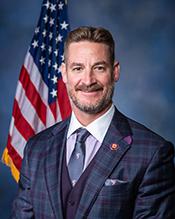0
0
0
Affordable Care and Comprehensive Economic Support through Savings Act
12/19/2024, 9:07 AM
Summary of Bill HR 5608
Bill 118 hr 5608, also known as the Affordable Care and Comprehensive Economic Support through Savings Act, aims to address issues related to healthcare affordability and economic support for individuals and families in the United States. The bill includes provisions that seek to improve access to affordable healthcare coverage, reduce healthcare costs, and provide economic support to those in need.
One key aspect of the bill is the expansion of healthcare coverage options through the creation of a public option for health insurance. This public option would be available to individuals and families who do not have access to employer-sponsored insurance or who cannot afford coverage through the private market. The goal of this provision is to increase competition in the healthcare marketplace and lower costs for consumers.
Additionally, the bill includes measures to address prescription drug costs by allowing the government to negotiate drug prices with pharmaceutical companies. This provision aims to lower the cost of prescription medications for individuals and families, particularly those with chronic conditions who rely on expensive medications to manage their health. In terms of economic support, the bill includes provisions to increase the minimum wage and expand access to unemployment benefits for individuals who have lost their jobs. These measures are intended to provide financial assistance to those who are struggling to make ends meet and support economic recovery in the wake of the COVID-19 pandemic. Overall, the Affordable Care and Comprehensive Economic Support through Savings Act seeks to improve healthcare affordability and provide economic support to individuals and families in need. By expanding access to healthcare coverage, reducing prescription drug costs, and increasing economic support for those facing financial hardship, the bill aims to address key issues facing Americans today.
One key aspect of the bill is the expansion of healthcare coverage options through the creation of a public option for health insurance. This public option would be available to individuals and families who do not have access to employer-sponsored insurance or who cannot afford coverage through the private market. The goal of this provision is to increase competition in the healthcare marketplace and lower costs for consumers.
Additionally, the bill includes measures to address prescription drug costs by allowing the government to negotiate drug prices with pharmaceutical companies. This provision aims to lower the cost of prescription medications for individuals and families, particularly those with chronic conditions who rely on expensive medications to manage their health. In terms of economic support, the bill includes provisions to increase the minimum wage and expand access to unemployment benefits for individuals who have lost their jobs. These measures are intended to provide financial assistance to those who are struggling to make ends meet and support economic recovery in the wake of the COVID-19 pandemic. Overall, the Affordable Care and Comprehensive Economic Support through Savings Act seeks to improve healthcare affordability and provide economic support to individuals and families in need. By expanding access to healthcare coverage, reducing prescription drug costs, and increasing economic support for those facing financial hardship, the bill aims to address key issues facing Americans today.
Read the Full Bill
Current Status of Bill HR 5608
Bill HR 5608 is currently in the status of Bill Introduced since September 20, 2023. Bill HR 5608 was introduced during Congress 118 and was introduced to the House on September 20, 2023. Bill HR 5608's most recent activity was Referred to the Subcommittee on Health. as of December 17, 2024
Bipartisan Support of Bill HR 5608
Total Number of Sponsors
2Democrat Sponsors
0Republican Sponsors
2Unaffiliated Sponsors
0Total Number of Cosponsors
5Democrat Cosponsors
0Republican Cosponsors
5Unaffiliated Cosponsors
0Policy Area and Potential Impact of Bill HR 5608
Primary Policy Focus
HealthAlternate Title(s) of Bill HR 5608
Affordable Care and Comprehensive Economic Support through Savings Act
Affordable Care and Comprehensive Economic Support through Savings Act
To allow individuals to elect to receive contributions to a health savings account in lieu of reduced cost-sharing under health insurance obtained through a health insurance Exchange.
Comments

Maxine Payne
444
11 months ago
I can't believe this new bill is gonna mess with my healthcare! It's like they don't even care about us regular folks. Why do they gotta make everything so complicated? I just want to be able to afford my doctor visits without jumping through hoops. This is just ridiculous.
Sponsors and Cosponsors of HR 5608
Latest Bills
Preventing Elected Leaders from Owning Securities and Investments (PELOSI) Act
Bill S 1498December 11, 2025
Holocaust Expropriated Art Recovery Act of 2025
Bill S 1884December 11, 2025
Enduring Justice for Victims of Trafficking Act
Bill S 2584December 11, 2025
SPEED Act
Bill HR 4776December 11, 2025
Southcentral Foundation Land Transfer Act of 2025
Bill HR 3620December 11, 2025
Affordable HOMES Act
Bill HR 5184December 11, 2025
To reauthorize the Junior Duck Stamp Conservation and Design Program Act of 1994.
Bill HR 1098December 11, 2025
A bill to provide for an extension of the legislative authority of the National Emergency Medical Services Memorial Foundation to establish a commemorative work in the District of Columbia and its environs.
Bill S 2546December 11, 2025
Moab UMTRA Project Transition Act of 2025
Bill S 1321December 11, 2025
Federal Mechanical Insulation Act
Bill HR 3474December 11, 2025





